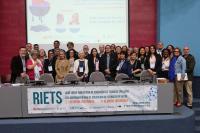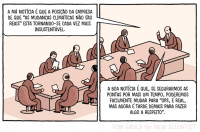Bachelet will chair PAHO committee to promote universal health access and coverage in the Americas

Chile's President Michelle Bachelet will chair a high-level commission convened by the Pan American Health Organization (PAHO) to propose solutions that will expand access and health coverage in the Americas by 2030, "without leaving anyone back".
Bachelet was invited by Carissa F. Etienne, Director of PAHO, who is also the regional office for the World Health Organization in Americas (WHO), to lead the High Level Commission of the Regional Forum “Salud Universal en el siglo XXI: 40 años de Alma-Ata” – “Universal Health in the 21st Century: 40 years of Alma-Ata”.
"Your leadership and commitment are fundamental if we are to empower people and communities in the pursuit of equity and the realization of the right to health," Etienne told Bachelet at the inaugural session of the commission, which the Chilean president virtually participated in.
After four decades of the Alma-Ata Declaration, which advocated health for all by the year 2000, 30% of the population of the Americas does not have access to health care for economic reasons and 21% do not receive attention due to geographical barriers. Universal health, which is Alma-Ata's expression in the 21st century, "is possible and necessary," Etienne said. The Director of PAHO also considered that progress towards this goal requires a special effort and a focus on vulnerable populations.
In recent years, countries in the region have progressed and implemented various transformations in their health systems to make them more inclusive and reach the people who need them. The work of the commission will point to the acceleration of these transformations - including the people in the design, implementation and supervision of policies and health plans created for them. This is expected to contribute to universal health by 2030, in line with countries' commitment to the new Sustainable Development Agenda.
"We must respond urgently to current major challenges in health," such as accelerated aging of the population and chronic noncommunicable diseases, Bachelet said. The president of Chile called on the countries to "act with greater decision and to impel policies that allow to face the inequalities and the inequalities in health and to include the most vulnerable groups, because not to approach this implies to renounce like region to the possibility to reach the development sustainable ".
The commission will produce a report with recommendations for improving health systems performance, including those that are still excluded, empowering communities and improving social participation in decisions that impact on the health of the population, with the goal of moving towards universal health in the region.
In addition to Bachelet, the Commission is composed of representatives of international organizations, government, civil society and academia from more than 10 countries. The Assistant Secretary General of the Organization of American States (OAS), Néstor Méndez, will be the co-chair. Other members include: Denzil Douglas, former Prime Minister of Saint Kitts and Nevis; Carina Vance, executive director of the South American Institute of Government in Health (ISAGS-UNASUR); Lais Abramo, director of the Social Development Division of the Economic Commission for Latin America and the Caribbean (ECLAC); Margarita Posada, national coordinator of the Social Health Forum of El Salvador; Hernando Viveros Cabezas, president of the Afro-Colombian Global Initiative; Vivian Camacho, defender of the rights of the indigenous populations of Bolivia; Toni Reis, president of the Dignity Group, which defends the rights of LGBTI people in Brazil; and Mirna Kay Cunningham Kain, Chair of the Governing Council of the Fund for the Development of Indigenous Peoples of Latin America and the Caribbean (FILAC).
Also part of the Chelauna Providence Commission, program director of the Guinean Responsible Parenthood Association (GRPA); María Soledad Cisternas, Special Envoy of the United Nations High Commissioner on Disability and Accessibility; María Isabel Rodríguez, former Minister of Public Health and Social Assistance of El Salvador; Beatriz Londoño, ambassador of the Permanent Mission of Colombia to the United Nations in Geneva; and the Uruguayan Daniel Olesker, from the Cuesta Duarte Institute of PIT, and Mario Mujica, representative of the workers in the National Health Board of Uruguay.



